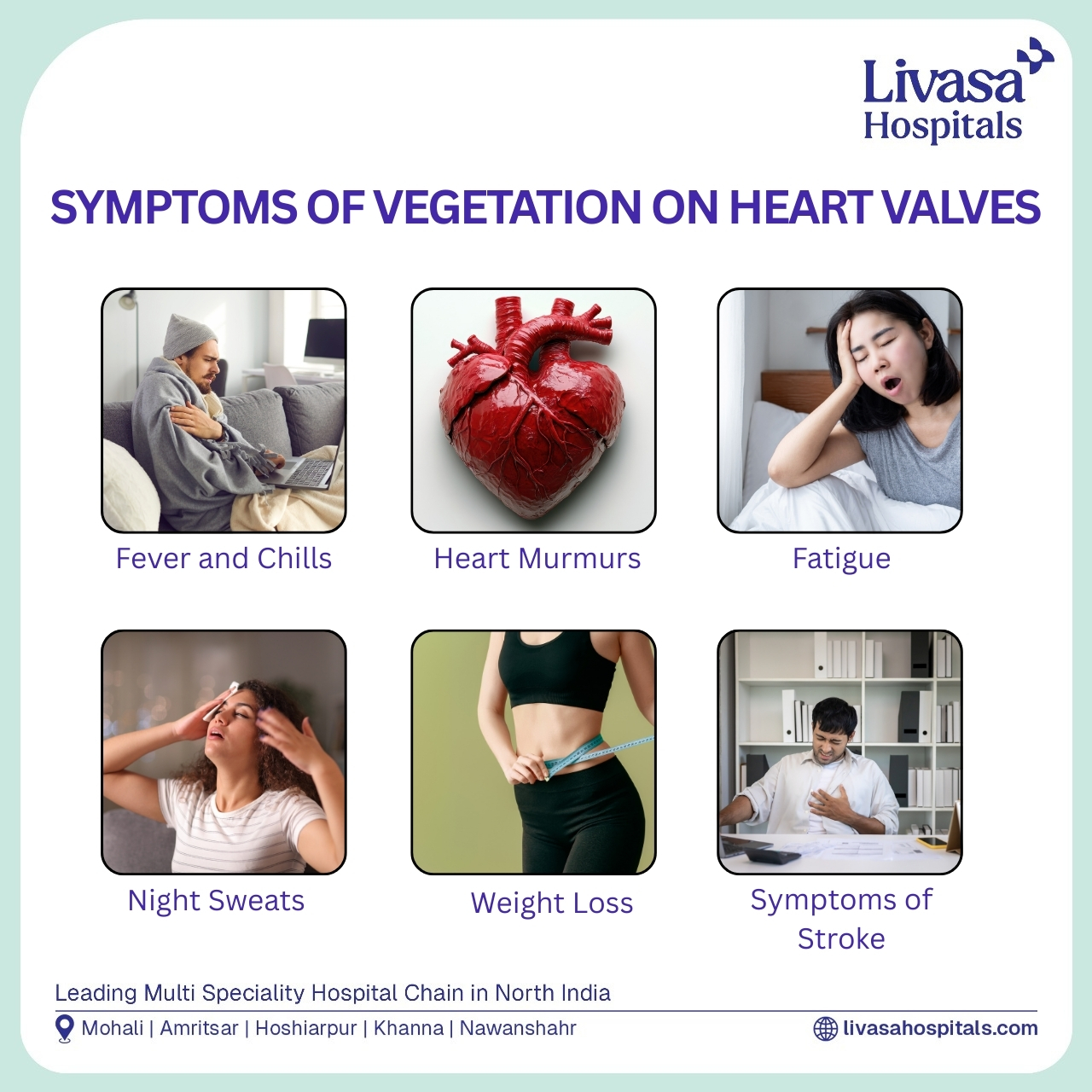03 Feb 2026
Rhinoplasty Revision Surgery in Mohali: Cost When Your First Nose Job Fails

Dr. Harinder K Bali
21 May 2025
Call +91 80788 80788 to request an appointment.
Vegetation on heart valves refers to abnormal growths or masses that form on the heart valves, primarily as a result of infective endocarditis. This condition can lead to severe complications such as heart failure, stroke, and other systemic infections. Understanding the causes, risks, symptoms, and treatment options associated with vegetation on heart valves is crucial for effective management and better patient outcomes.
The heart valves, which regulate blood flow within the heart, can become infected through various means, such as bacteria entering the bloodstream during dental procedures, surgeries, or through infections elsewhere in the body. The development of vegetation can hinder normal valve function and lead to increased morbidity and mortality if not treated timely. According to studies, the incidence of infective endocarditis is approximately 3 to 10 cases per 100,000 person-years, making it a serious public health concern.
The primary cause of vegetation formation on heart valves is infective endocarditis, an infection of the inner lining of the heart chambers and valves. Various factors contribute to the development of this condition:
Recognizing the symptoms associated with vegetation on heart valves is crucial for early diagnosis and treatment. Symptoms may vary based on the severity of the infection and affected heart valves. Common signs include:

The presence of vegetation on heart valves poses significant risks, both of direct cardiovascular complications and systemic effects. These risks include:
Proper diagnosis is essential for determining the presence of vegetation on heart valves. Common diagnostic methods include:
Treatment for vegetation on heart valves primarily focuses on eliminating the infection and restoring normal valve function. Options include:
| Treatment Option | Description | Recovery Time |
|---|---|---|
| Antibiotic Therapy | High-dose intravenous antibiotics are administered to treat the bacterial infection. | 4 to 6 weeks |
| Surgical Intervention | Surgery may be required to repair or replace a damaged heart valve. | 2 to 6 weeks, depending on the procedure |
Effective management of endocarditis is vital to prevent further complications. Key components involve:
Vegetation on heart valves is a serious condition that can have profound implications for heart health. Early detection and comprehensive treatment are essential in the management of this condition. If you suspect symptoms consistent with infective endocarditis or have any concerns regarding your heart health, it is crucial to consult a cardiac specialist.
At Livasa Hospitals in Punjab, we are committed to providing the best cardiac care through our team of experienced cardiac surgery experts. If you or a loved one is experiencing symptoms related to heart valve infections, don't hesitate to book an appointment or contact us at +91 80788 80788 for comprehensive evaluation and treatment options tailored to your needs.
Understanding and addressing the risks associated with vegetation on heart valves can lead to better health outcomes. Contact Livasa Hospitals today for further information about treatment options, or to speak to our cardiac specialty team.
Rhinoplasty Revision Surgery in Mohali: Cost When Your First Nose Job Fails
Plastic Surgery After Massive Weight Loss: Body Contouring Packages in Mohali
ENT + Cosmetic in Mohali: Septoplasty for Breathing with Cosmetic Rhinoplasty Offers
Livasa Healthcare Group Corporate Office,Phase-8, Industrial Area, Sector 73, Sahibzada Ajit Singh Nagar, Punjab 160071
| Mohali | +91-99888 23456 |
| Amritsar | +91-99887 49494 |
| Hoshiarpur | +91-99883 35353 |
| Nawanshahr | +91-75081 82337 |
| Khanna | +91-98888 05394 |